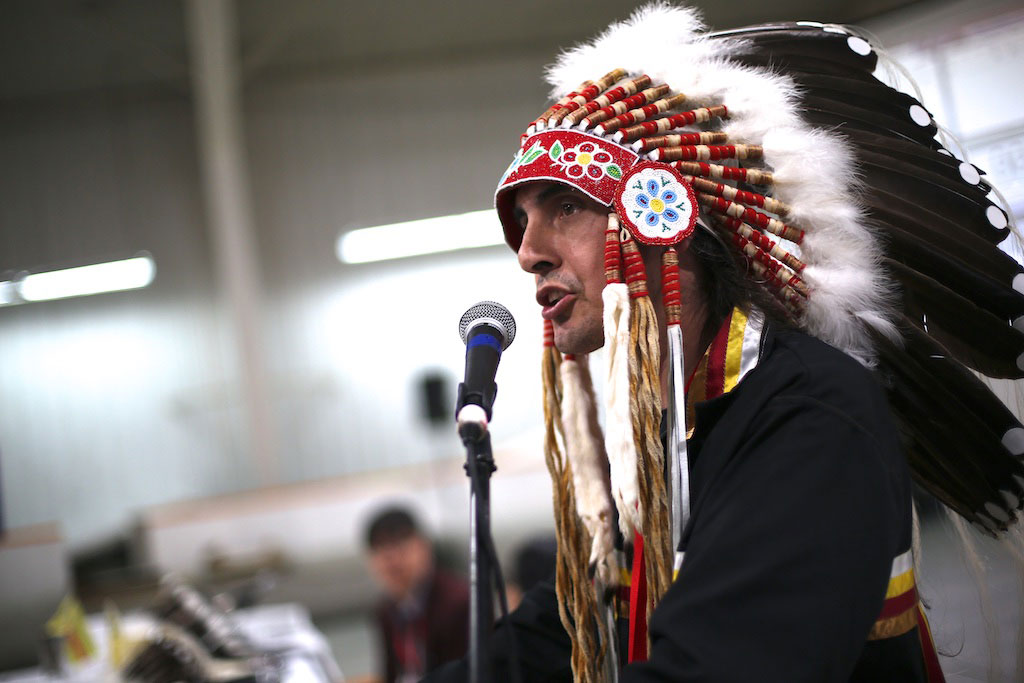The Assembly of Manitoba Chiefs is standing in opposition to a government proposal for a curfew to combat the spread of the coronavirus.

Grand Chief Arlen Dumas says a curfew — which the Manitoba government is taking feedback on through an online survey — would disproportionately affect Indigenous people.
“This flawed process does not consider the impact of a curfew on First Nations and issues of homelessness, which is a significant issue in the City of Winnipeg,” Dumas said in a release.
“If the homeless are not able to get a bed at a shelter, which are in short supply as it is, their only other option is to survive on the streets. It is unjust and a sad reflection of society if marginalized people are going to be punished for being in public when that is their only option.”

Premier Brian Pallister announced earlier this week the province is considering a nightly curfew due to the rising number of COVID-19 cases, including another 374 new cases and two more deaths Wednesday.

Get weekly health news
The survey has come under fire from some wondering why the government wouldn’t just put a curfew in place if public health officials think it’s needed.
The nine-question survey includes questions on what time in the evening a curfew should start, where in the province it should be imposed and who should be exempt (first responders, Winnipeg Transit drivers, essential service workers, etc.)
While the survey says the government is considering the curfew “in order to limit the movement of people later in the evening and overnight,” it doesn’t say what time a possible curfew order would be lifted in the morning or how long it may be needed.

Rather than a curfew, Dumas said he would like to see government crack down on businesses not abiding by public health orders.
“The risky behaviors of patrons at establishments and venues should be the focus rather than vulnerable citizens who have no place to self-isolate or go to abide with a proposed curfew,” Dumas said.
“I call on the Province to more carefully design public consultation on the proposed curfew, to implement it with the most marginalized and vulnerable in mind and with clear plans to assist those who don’t have a house to attend during curfew hours.”
Pallister has said the province will announce later this week if it will go ahead with the curfew.
–With files from The Canadian Press

Questions about COVID-19? Here are some things you need to know:
Symptoms can include fever, cough and difficulty breathing — very similar to a cold or flu. Some people can develop a more severe illness. People most at risk of this include older adults and people with severe chronic medical conditions like heart, lung or kidney disease. If you develop symptoms, contact public health authorities.
To prevent the virus from spreading, experts recommend frequent handwashing and coughing into your sleeve. They also recommend minimizing contact with others, staying home as much as possible and maintaining a distance of two metres from other people if you go out. In situations where you can’t keep a safe distance from others, public health officials recommend the use of a non-medical face mask or covering to prevent spreading the respiratory droplets that can carry the virus. In some provinces and municipalities across the country, masks or face coverings are now mandatory in indoor public spaces.
For full COVID-19 coverage from Global News, click here.
- Woman dies in ‘suicide pod’ in Switzerland, several people arrested
- Pfizer’s updated COVID-19 vaccine approved by Health Canada
- Canada’s new pandemic preparedness agency aims to speed up vaccine development
- After controversial directive, Quebec now says anglophones have right to English health services









Comments